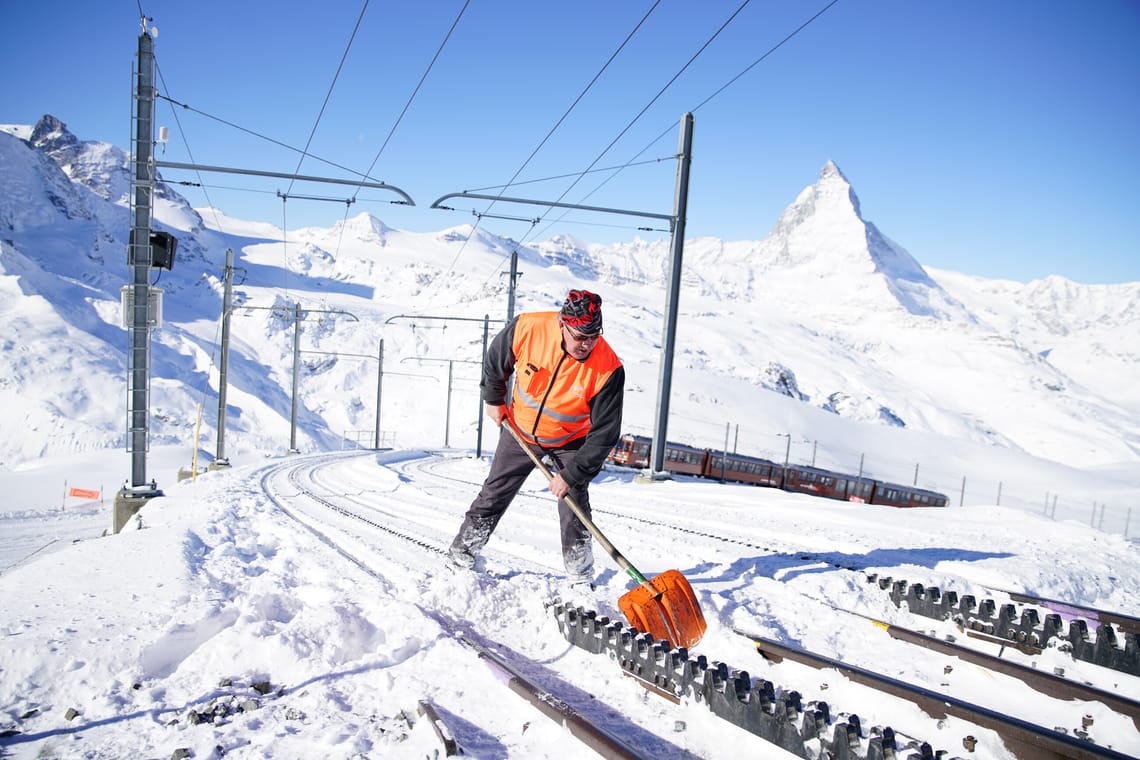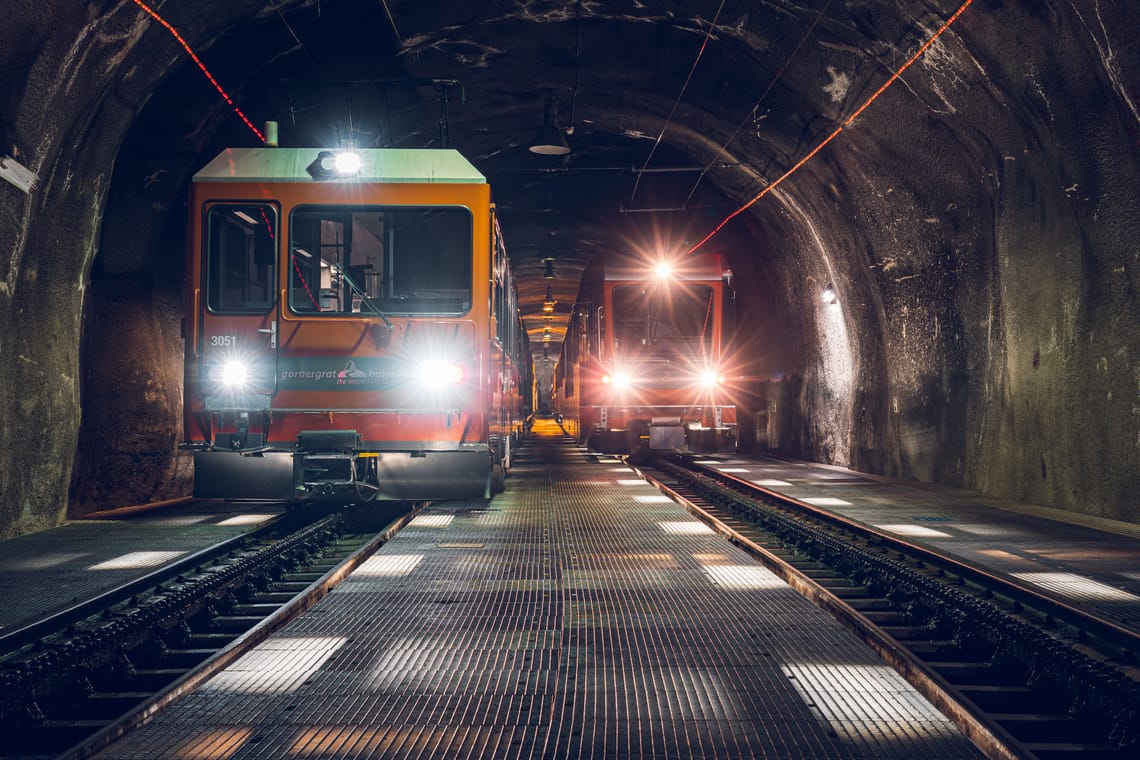The Gornergrat Railway and sustainability
Energy-efficient operation since 1898
The Gornergrat, a natural gem, offers our visitors the opportunity to move around in an almost untouched environment and experience unique flora and fauna. Protecting these natural treasures and playing an active role in climate protection are of key importance to us.
Get involved! Together for Climate Protection and Sustainability.
As part of the myclimate initiative "Cause We Care," we give you the opportunity to make a meaningful contribution to climate protection and sustainability with a voluntary contribution. 100 per cent of your emissions will be reduced in Swiss carbon offset projects.
By contributing, you support our sustainability measures and take responsibility for the carbon emissions generated by your mountain experience. As a token of appreciation, we promise to match your contribution. A portion of the funds will be used to support high-quality climate protection projects by the myclimate foundation. The remaining amount will be invested by us in local sustainability measures or towards overall business sustainability. You can make a voluntary contribution either during the ticket purchase process or by donating any amount of your choice via this link.
Together, we take care of the environment so that you and future generations can enjoy our nature.
I care – With each booking, you have the opportunity to voluntarily make a small 'Cause We Care' contribution. By doing so, you take responsibility for the generated CO2 emissions.
We care – If you join us, we will match your contribution and place both amounts into our 'Cause We Care' fund.
Cause We Care – Funds from the fund are donated in part to climate protection projects. Simultaneously, we invest in local climate protection and sustainability measures within our own organization.
Recuperation
The Gornergrat Railway uses recuperation to increase your [A1] energy efficiency. All trains have asynchronous engines as traction motors that feed excess energy back into the grid when the train travels back down to the valley. This allows trains travelling uphill to harness this energy. This process has been in place since the first trip in 1898.
Every journey generates reactive power, unused electricity in the grid. Normally, this is compensated by capacitors. Reactive power cannot be used directly, but in transformers and generators for magnetic fields and capacitor charging. The new trains can compensate for this reactive power themselves, which further increases efficiency.
Three downhill trains generate enough electricity for one or two uphill trains. This recuperation contributes to a sustainable energy supply.
State-of-the-art points heating
Thanks to state-of-the-art points heating, we save energy efficiently. Around 80% of our points are already equipped with state-of-the-art heating systems that respond intelligently to humidity and temperature. Thanks to precise measurements of temperature, precipitation and wind, the heating is only activated when it is really necessary.
This not only enables significant energy savings, but also prevents line interruptions due to blocked points. The new heating systems also use 45-50% less electricity, which makes a lasting contribution to conserving resources.
Sustainable garaging in the mountain
Behind the Getwing Bridge in Zermatt is the "Stollen" an underground depot of the Gornergrat Railway. This is where the trains are parked and cleaned. The constant average temperature of 14 degrees in the tunnel is ideal for storing the railway cars. Thanks to this mountain heat, no additional heating is required. In winter the snow melts from the cars, in summer they are pleasantly cooled.
The lighting system in the depot tunnel of the Gornergrat Railway has been replaced with LED lighting, reducing the power consumption from 12.6 kW to 4.4 kW, resulting in approximately 60% energy savings. Since the product used consists of 80% pre-assembled materials, the installation time was minimized.
The windows and the entire interior of the trains are cleaned in the tunnel, while technical maintenance is carried out in the workshop at the Gornergrat Railway station. The excavated material was reused in an environmentally friendly manner
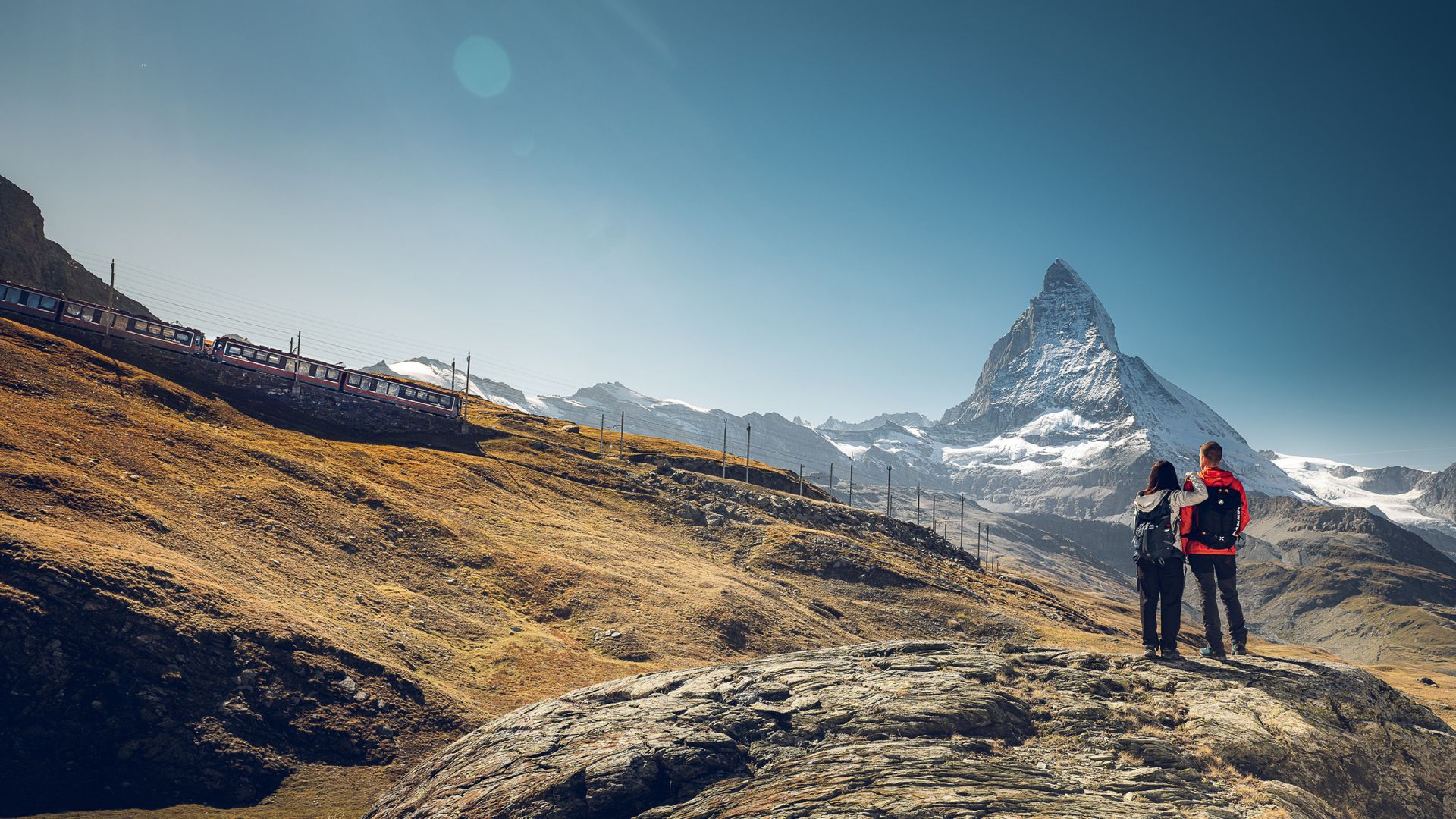

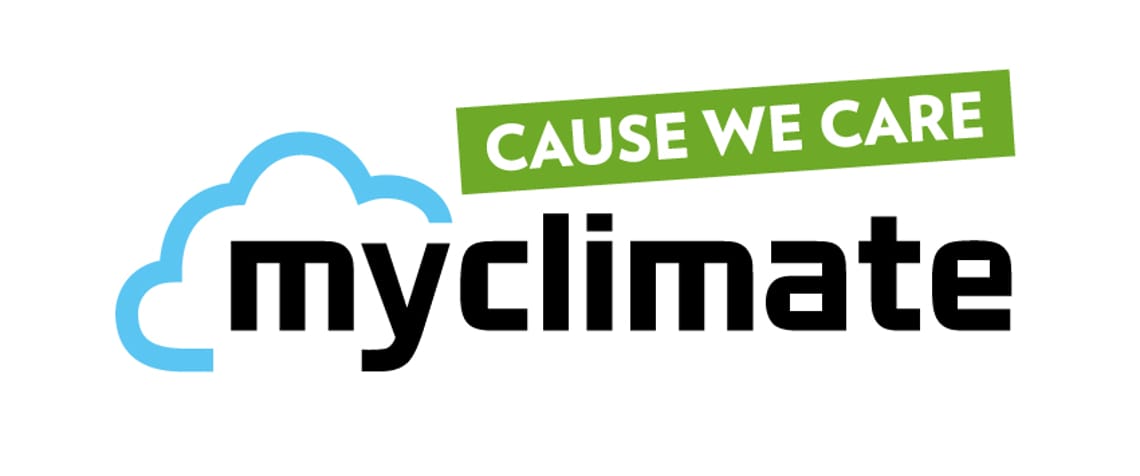


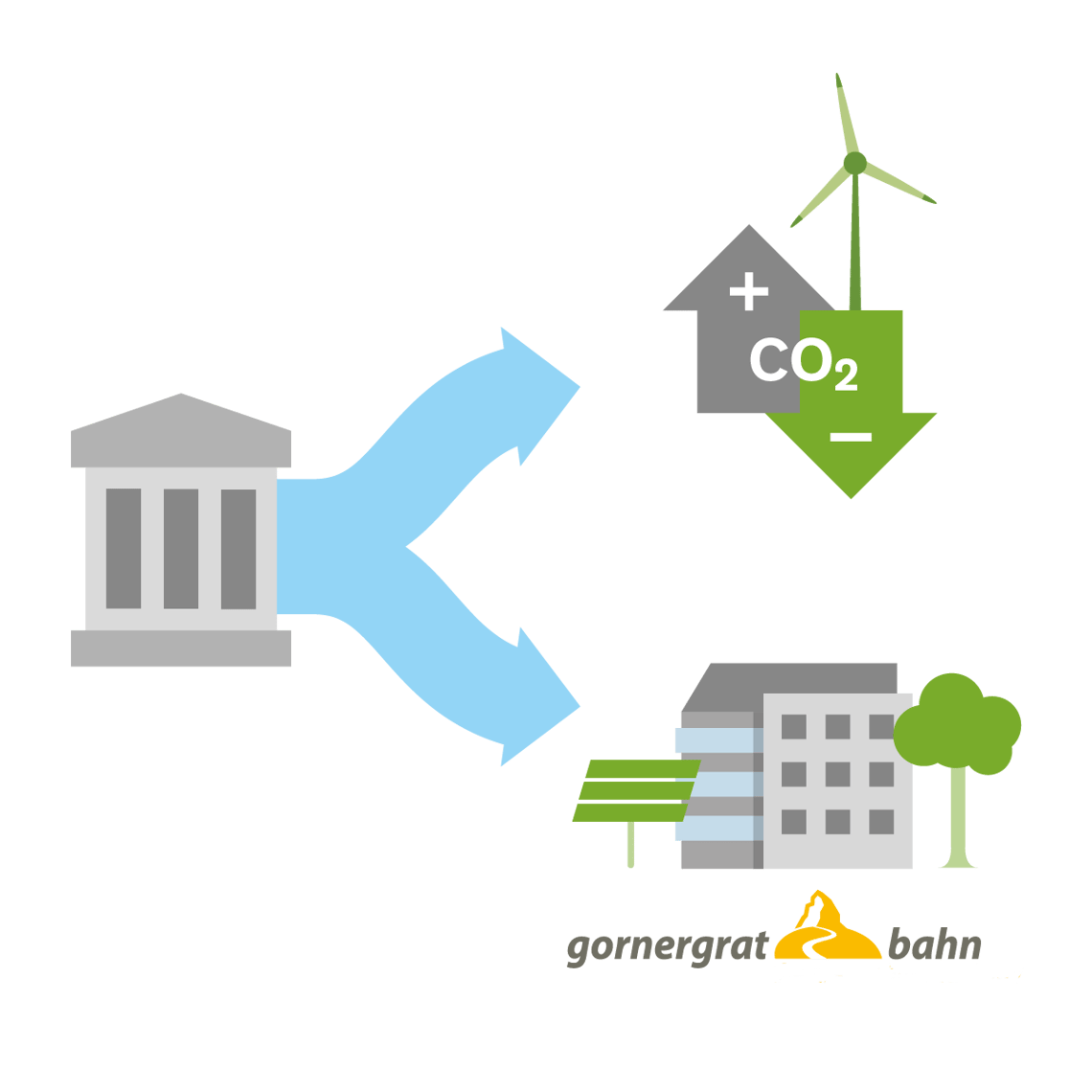
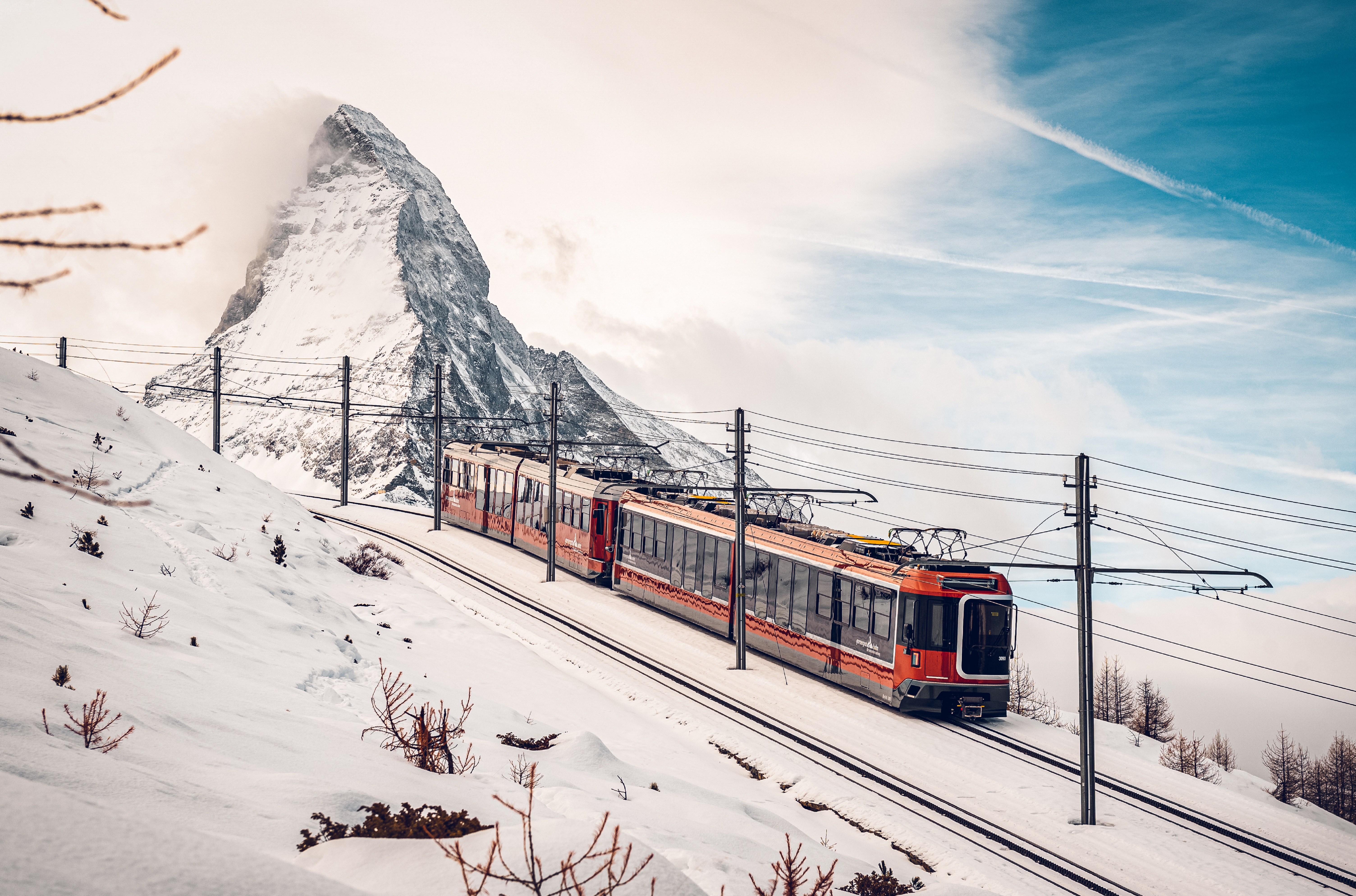.jpg?fm=jpg&fl=progressive&f=center&fit=fill&q=45&w=1140)
